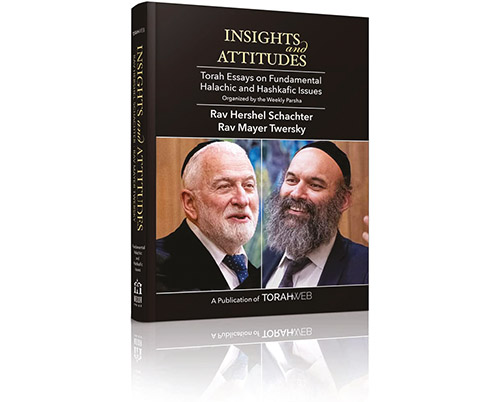
Editor’s note: This series is reprinted with permission from “Insights & Attitudes: Torah Essays on Fundamental Halachic and Hashkafic Issues,” a publication of TorahWeb.org. The book contains multiple articles, organized by parsha, by Rabbi Hershel Schachter and Rabbi Mayer Twersky.
The Torah tells us that the month of Nisan is the first month in the Jewish calendar. According to the Mishna in the beginning of Rosh Hashana, common practice was to date all documents in reference to the number of years since the local government had been founded. Each time a king died and a new ruler was appointed, legal documents would reflect the number of years since the new king had been crowned. If a new government was established on July 4th, for example, one would not wait until the following July 4th to reflect the new ruler, but would count the years of rule starting from the first day of the calendar year. For a Jewish king ruling over Eretz Yisrael, Rosh Chodesh Nisan is considered the start of the new year. Regarding all other governments, the new year begins with Rosh Chodesh Tishrei. The Ran, commenting on the Rif (beginning of Masseches Rosh Hashana), understands that this was not merely the conventional practice, rather it reflected a halacha.
The Netziv, in his commentary on the Torah (Shemos 12:2), explains the idea behind this halacha as follows: when God created the entire world in six days, He instituted all the rules of nature. Included among the laws of nature are the principles of mathematics, physics, chemistry and even the rules of history. Just as a chemistry expert can predict accurately the reaction that will follow the mixing of two chemicals, so too, one who understands well the rules of history can predict particular events, even the rise and fall of a particular nation. Years prior to the Japanese attack on Pearl Harbor, an American politician predicted, in writing, that early on a Sunday morning in December, in so many years, the Japanese will attack the American military base. He explained logically why it would take place on a Sunday morning, and why in December, etc., and his prediction was accurate. This is what the Rabbis of the Talmud meant when they wrote (see Shabbos 156a) that all the nations of the world are “under the control of the stars and the constellations.” The history of the nations is controlled by the natural rules of history, instituted by the Creator at the time of creation. It is for this reason that when recording the years of the non-Jewish kings, (i.e., non-Jewish history), the Rosh Hashana is the first day of Tishrei, the day on which we celebrate the completion of creation, and the day on which the rules of history began.
However, the history of the Jewish people is above nature. The month of Nisan represents nissim (miracles), and we were commanded to count the months starting with Nisan as the first month. Ramban, in his commentary on the Torah (Bereishis 17:1), writes that in his opinion this point is most crucial to the hashkafa of our religion; namely, that Jewish history is למעלה מן הטבע. Does it make sense that if the Jews violate the laws of shemitta they lose their control over Eretz Yisrael? Is it logical that if a Jew observes Shabbos and kashrus that his parnasa will be taken care of? The answer is that “אין מזל לישראל,” that the natural rules of history do not apply to the Jewish people.
Jewish history starts its New Year with Rosh Chodesh Nisan, the month of miracles, to emphasize the idea that all of Jewish history is made up of miracles. Our history begins and ends with the month of Nisan, the month of nissim.
Rabbi Hershel Schachter joined the faculty of Yeshiva University’s Rabbi Isaac Elchanan Theological Seminary in 1967, at the age of 26, the youngest Rosh Yeshiva at RIETS. Since 1971, Rabbi Schachter has been Rosh Kollel in RIETS’ Marcos and Adina Katz Kollel (Institute for Advanced Research in Rabbinics) and also holds the institution’s Nathan and Vivian Fink Distinguished Professorial Chair in Talmud. In addition to his teaching duties, Rabbi Schachter lectures, writes, and serves as a world renowned decisor of Jewish Law.








